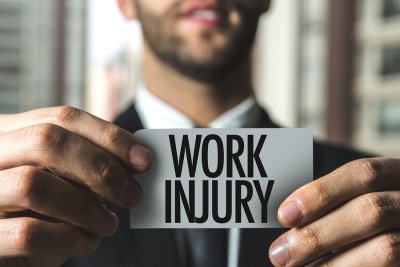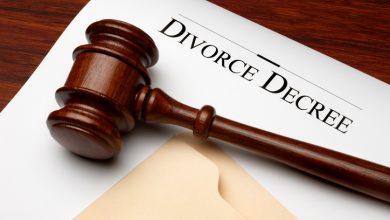What Are Your Rights If You Are Injured at Work?

What Are Your Rights If You Are Injured at Work? Accidents at work happen all the time. While we never expect these sad tragedies to happen, it’s good to know that companies are required to pay for workers’ compensation insurance in every state to safeguard their employees’ health and well-being.
To help reduce workplace injuries and accidents, creating a safe and healthy work environment is a must. Regardless of how careful you are, work-related injuries can still happen. Broken bones, head injuries, disease, psychological ailments, burns, and other occupational dangers are all possible injuries.
Continue reading if you’ve been hurt at work and are unsure how to proceed and obtain proper workers compensation payments. There is crucial information from Oklahoma personal injury lawyer to know about your rights and what you should do after the injury has occurred.
What Are My Rights If I Was Injured at Work?
Employees who are injured at work must usually seek reimbursement through their state’s workers’ compensation system. Medical care and other benefits, such as partial salary replacement when they are unable to work due to their injuries, are covered by reimbursements.
Employees must be covered by workers’ compensation insurance, which is mandated by most firms. As a result, each state has its own set of rules and regulations when it comes to pursuing workers’ compensation payments. In general, there are a few rights that apply to wounded employees that are the same in all jurisdictions.
Workers Compensation is intended to cover medical expenditures, therapies, and a portion of lost wages for injured workers. Employees are eligible for payments regardless of who is at fault for the accident because workers compensation is a no-fault system.
Employees usually aren’t allowed to sue their employers. Although, as we’ll see later, there are methods to submit an appeal or investigate alternatives to fair recompense. First, I’ll go over some of the basic legal rights that everyone has, regardless of where they live.
-
After a work-related injury, you have the right to make a workers’ compensation claim.
After a workplace injury, the first thing you should do is file an accident claim. You can submit a claim with either the workers’ compensation court or the industrial court in your state.
Fill out an accident report and send it to your manager or supervisor as soon as possible after your workplace injury to help start the process of recording the occurrence and pursuing just compensation if necessary.
-
You have the right to seek medical attention if you need it.
Naturally, depending on the severity of your condition, you have the right to consult a doctor and seek medical treatment if you’ve been injured at work.
You might need to seek medical assistance right away. Even if you don’t have any symptoms and don’t believe the damage is significant, I strongly recommend seeing a doctor for a comprehensive medical evaluation.
It is also your right to choose your doctor, while your employer may require that you see a company doctor in their network in some instances.
A thorough medical examination will aid in determining the source and extent of your injury. This information will be used to establish your eligibility for workers’ compensation payments as well as the level of those benefits. Your doctor can also advise you on when it is safe to return to work.
-
If you disagree with the outcome of your claim, you have the right to seek an appeal.
You have the opportunity to appeal if you are unhappy with the outcome of your settlement. When there are arguments about when the employee should return to work or the outcome of the workers’ compensation claim for the injury, appeals are frequently filed. Appeals are commonly used to settle disputes between an employee and his or her employer.
-
If your condition warrants it, you have the right to claim for disability compensation.
Assume you are permanently or temporarily disabled as a result of a workplace injury, and you are unable to work as a result of your illness or injury. In that instance, in addition to ordinary worker’s compensation benefits, you have the option of filing for disability benefits.
-
When the doctor thinks you’re ready, you have the right to return to work.
You have the right to return to work once your doctor determines you’re fit to do so.
Now that we’ve reviewed the basic legal protections that all states share, let’s look at some of the most often asked questions about workplace injuries.
1. What Happens If I Get Hurt at Work?
If your employer has workers’ compensation insurance and you’ve been injured on the job, your wages will be partially or totally covered while you’re recovering and unable to work.
2. Can I sue my employer for a work-related injury?
Employees are often forbidden from suing their employers for work-related injuries. This is why workers’ compensation exists.
Suing will not be a possibility unless the employer intentionally and knowingly caused the employee injury.
Workers’ compensation insurance is a no-fault system, which means the employee does not have to establish fault in order to file a claim and get fair compensation for the injury.
3. How Long Do I Have to File a Workplace Injury Claim?
The time limit for filing a lawsuit varies by state.
Louisiana’s statute of limitations is one year from the date of harm, while some states allow up to two years.
4. Do I Need to Hire a Workers’ Compensation Attorney?
That is debatable. If your accident was mild and straightforward, you may not need the assistance of an attorney.
However, if you have experienced a serious injury or occupational sickness that necessitates extensive recuperation and medical care, consulting an attorney may be a wise decision.
When your health and financial well-being are at stake; it’s in your best interests to seek fair recompense for your injuries. Tulsa Oklahoma attorneys can assist you in understanding your rights to fair compensation and pursuing these financial benefits to the fullest extent possible.
5. Can I receive both reemployment assistance and workers’ compensation benefits?
In most circumstances, the answer is no.
When you apply for unemployment benefits, you’re indicating that you’re willing and able to work. Workers’ compensation benefits are designed to help people who are unable to return to work due to a temporary or permanent injury.
6. What Are the Different Types of Work-Related Injuries Covered?
The easiest approach to address this issue is to list the types of work-related injuries that are not covered.
Worker’s compensation insurance is unlikely to cover accidents caused (wholly or partially) by drugs, alcohol, or other intoxicants. Similarly, injuries that occur during a break or lunch away from work, or during a commute, are unlikely to be covered.
7. What Happens If My Employer Isn’t Insured for Workers’ Compensation?
Workers’ compensation insurance is required in most states in the United States; either through a third-party insurance carrier or through a self-insured scheme set up by the employer.
Employers may not have insurance in some cases because they do not satisfy the minimal number of ploys that demand coverage. Let’s say your employer isn’t covered by workers’ compensation. Depending on the details of your injuries; you may be able to submit a personal injury claim for a personal injury lawsuit.
Because you must establish your company was at fault for the injury accident; suing your employer in a court of law takes far longer than filing a workers’ compensation claim.
Speaking with a workers’ compensation lawyer can help you get the process started as soon as possible. Check to determine if your state offers particular funds for uninsured employees, sometimes known as uninsured employee funds or uninsured employee funds. For further information, contact your state’s workers’ compensation office.



